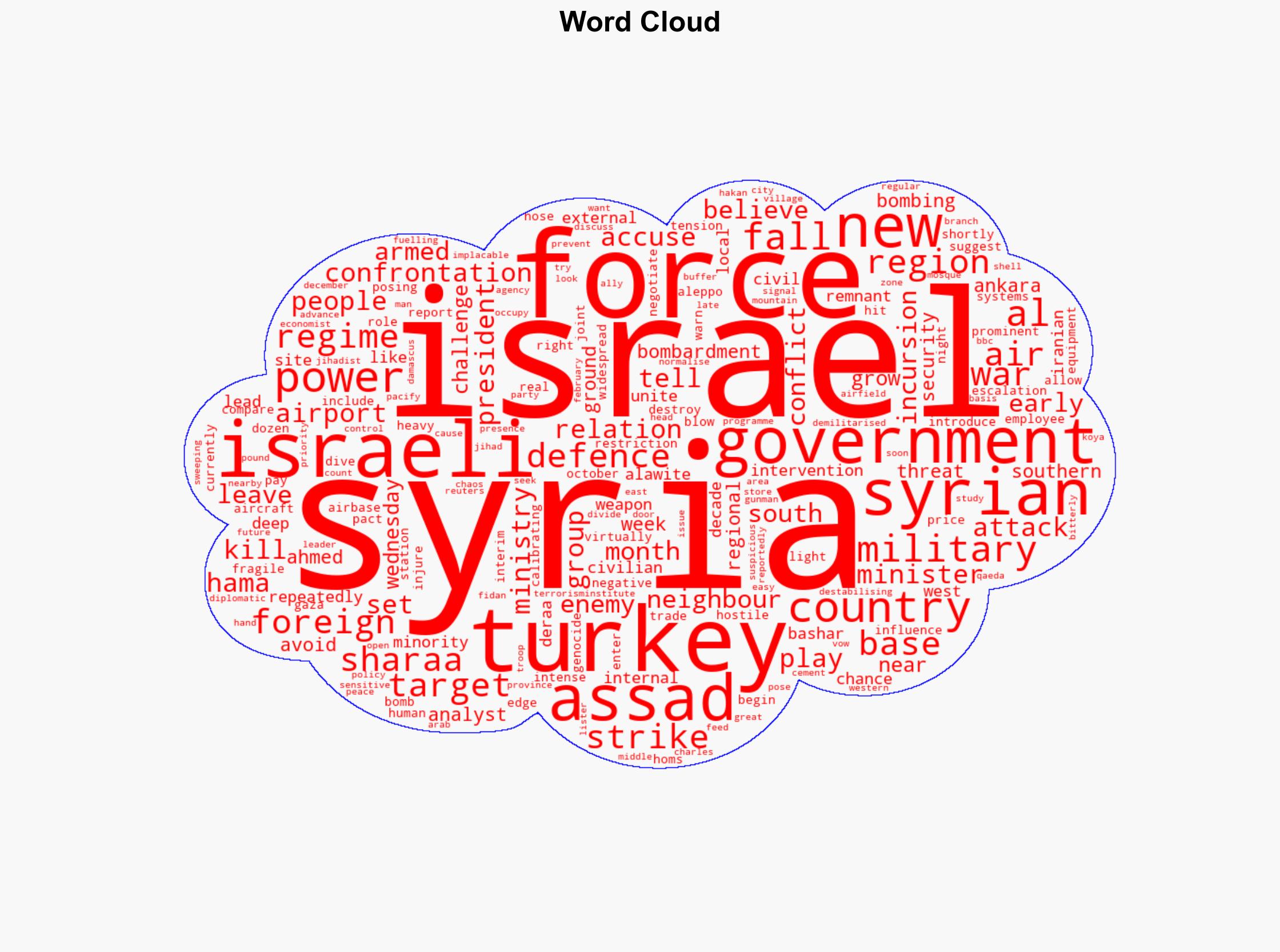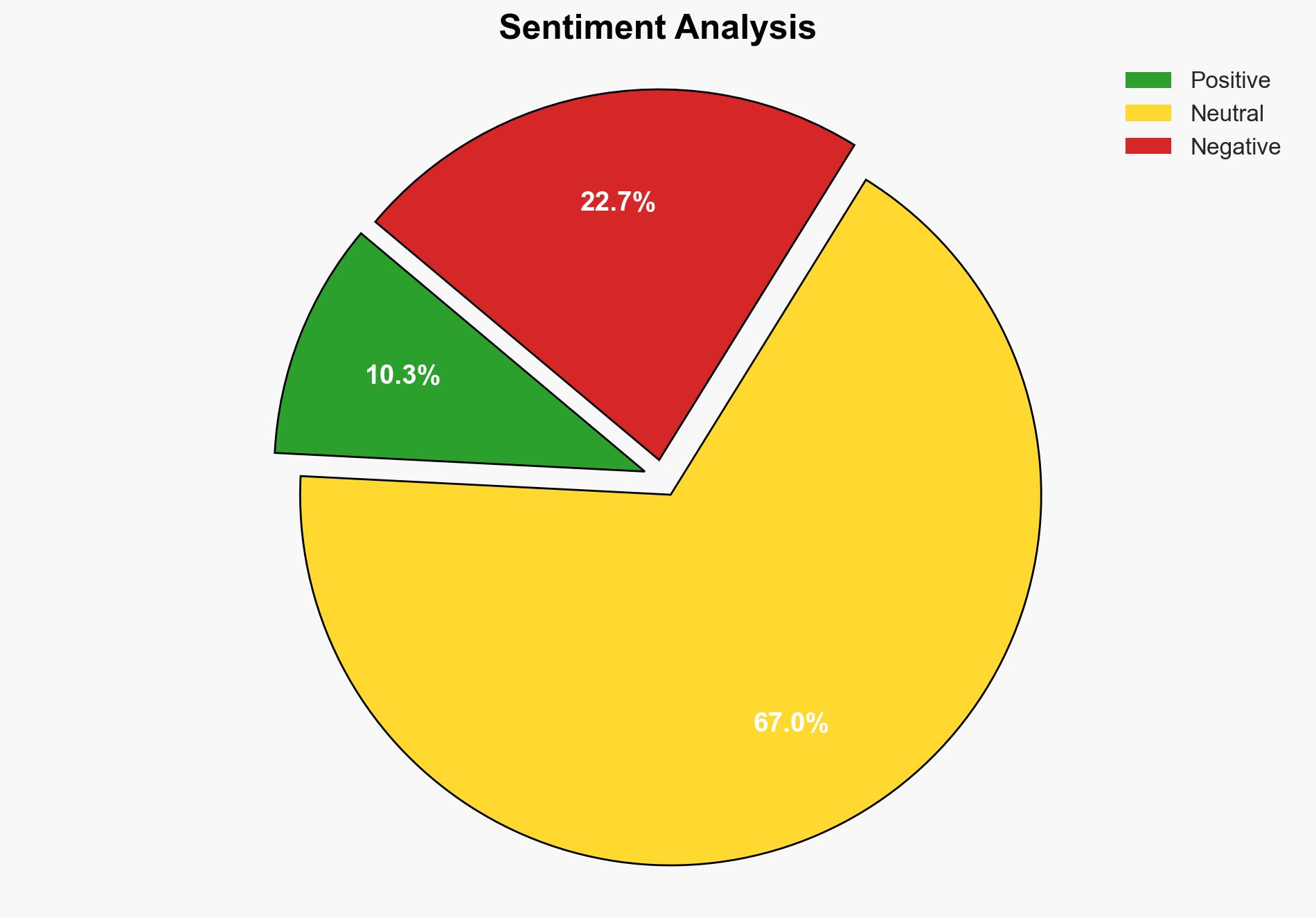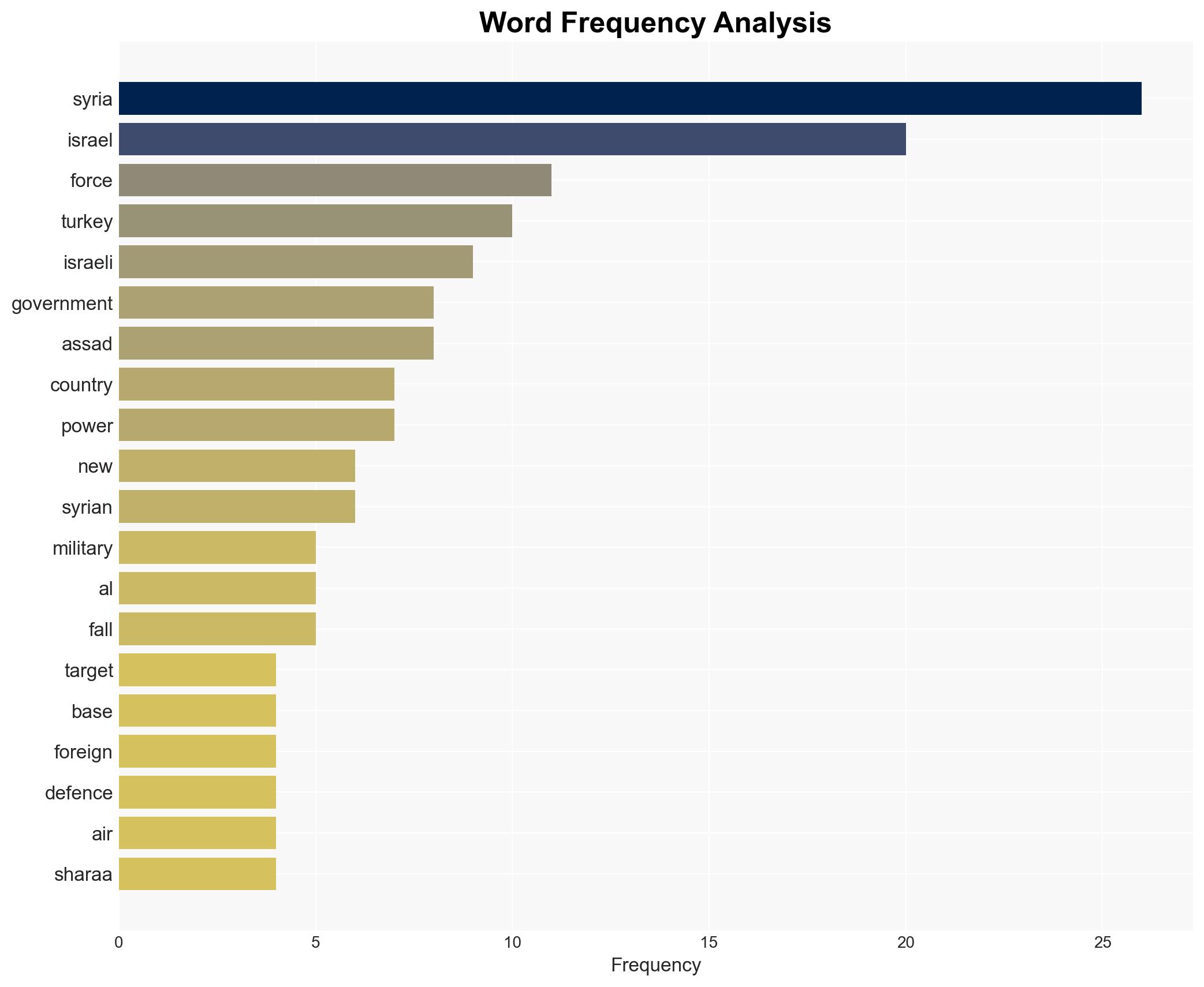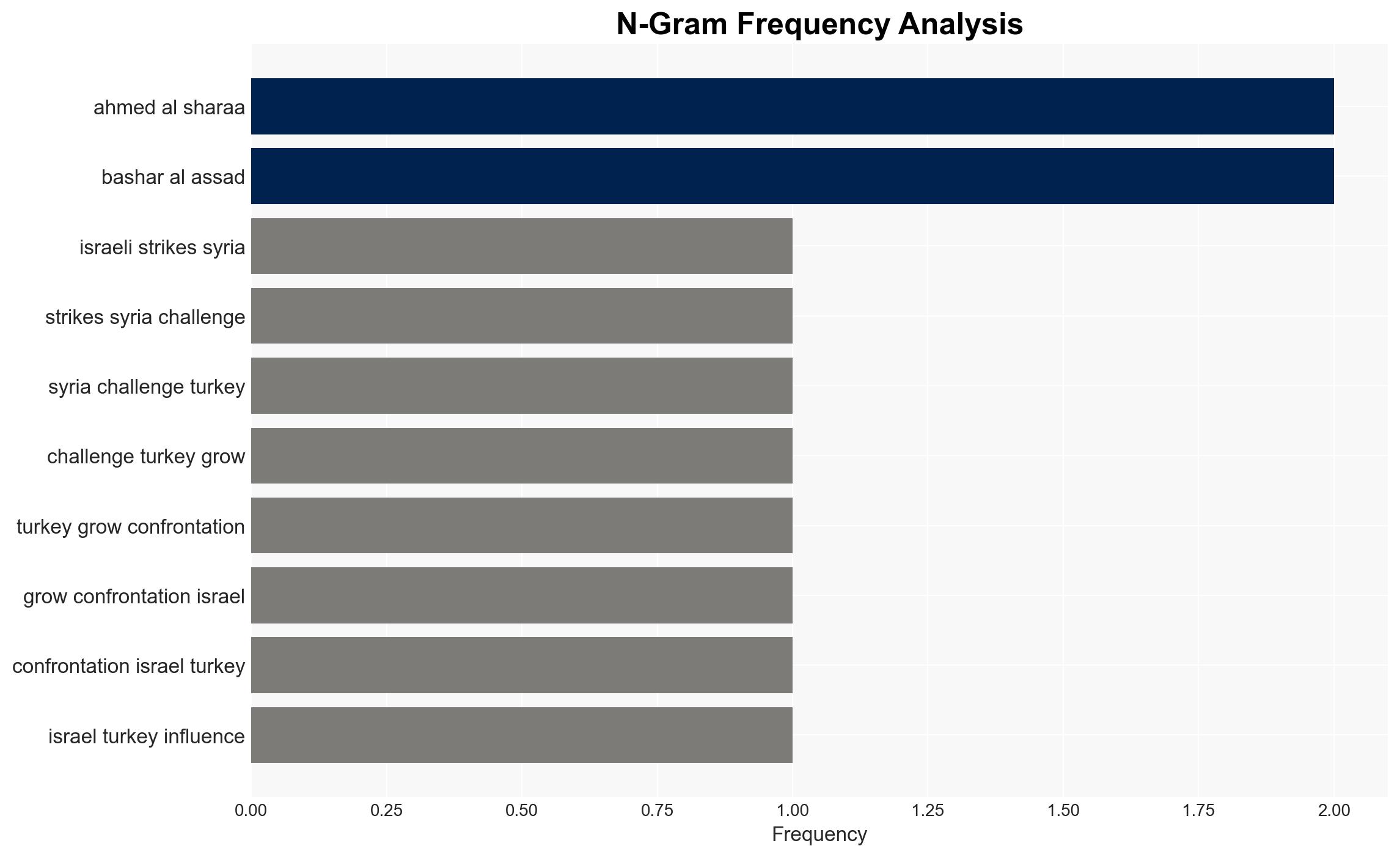Israel-Turkey tensions escalate over Syria – BBC News
Published on: 2025-04-04
Intelligence Report: Israel-Turkey Tensions Escalate Over Syria – BBC News
1. BLUF (Bottom Line Up Front)
The escalation of tensions between Israel and Turkey over Syria poses significant risks to regional stability. Recent Israeli airstrikes in Syria, targeting military installations, have heightened the confrontation with Turkey, which is reportedly moving military assets into the region. This development challenges the fragile Syrian government and could lead to broader regional conflicts. Immediate diplomatic engagement and strategic military assessments are recommended to mitigate potential escalations.
2. Detailed Analysis
The following structured analytic techniques have been applied for this analysis:
General Analysis
Recent Israeli airstrikes targeted military sites in Syria, including the Hama military airport and a base near Homs. These actions are perceived as direct challenges to Turkey’s growing influence in Syria. The Syrian foreign ministry reported significant damage to military infrastructure, with casualties among defense ministry employees and civilians. The strikes appear to be calibrated to avoid direct confrontation with Turkey, which is reportedly negotiating a defense pact with Syria’s new government.
The tensions are compounded by Turkey’s accusations against Israel of destabilizing the region and contributing to terrorism. This situation is further complicated by Syria’s new leadership under Ahmed al-Sharaa, who has signaled a desire to normalize relations with Israel while maintaining a strong stance against external interference. The presence of armed groups and the involvement of external powers like Iran and jihadist factions add layers of complexity to the conflict.
3. Implications and Strategic Risks
The ongoing conflict poses several strategic risks, including:
- Increased regional instability, potentially leading to broader military engagements involving multiple countries.
- Economic disruptions due to heightened tensions and potential trade restrictions between Israel and Turkey.
- Risk of further radicalization and recruitment by extremist groups exploiting the chaos.
- Potential for humanitarian crises as civilian casualties and displacement increase.
4. Recommendations and Outlook
Recommendations:
- Encourage diplomatic dialogue between Israel and Turkey to de-escalate tensions and establish communication channels.
- Enhance intelligence-sharing mechanisms to monitor military movements and prevent misunderstandings.
- Support humanitarian efforts to assist displaced civilians and mitigate the impact of the conflict on local populations.
Outlook:
Best-case scenario: Diplomatic efforts succeed in reducing tensions, leading to a stabilization of the region and resumption of peace talks.
Worst-case scenario: Escalation leads to direct military confrontation between Israel and Turkey, drawing in other regional powers and exacerbating the humanitarian crisis.
Most likely scenario: Continued low-intensity conflict with periodic escalations, maintaining a fragile status quo without significant resolution.
5. Key Individuals and Entities
The report mentions significant individuals and organizations involved in the current tensions:
- Ahmed al-Sharaa – New leader of Syria, signaling potential normalization with Israel.
- Hakan Fidan – Involved in articulating Turkey’s stance against Israel’s actions.
- Charles Lister – Analyst providing insights on the regional implications of the conflict.





